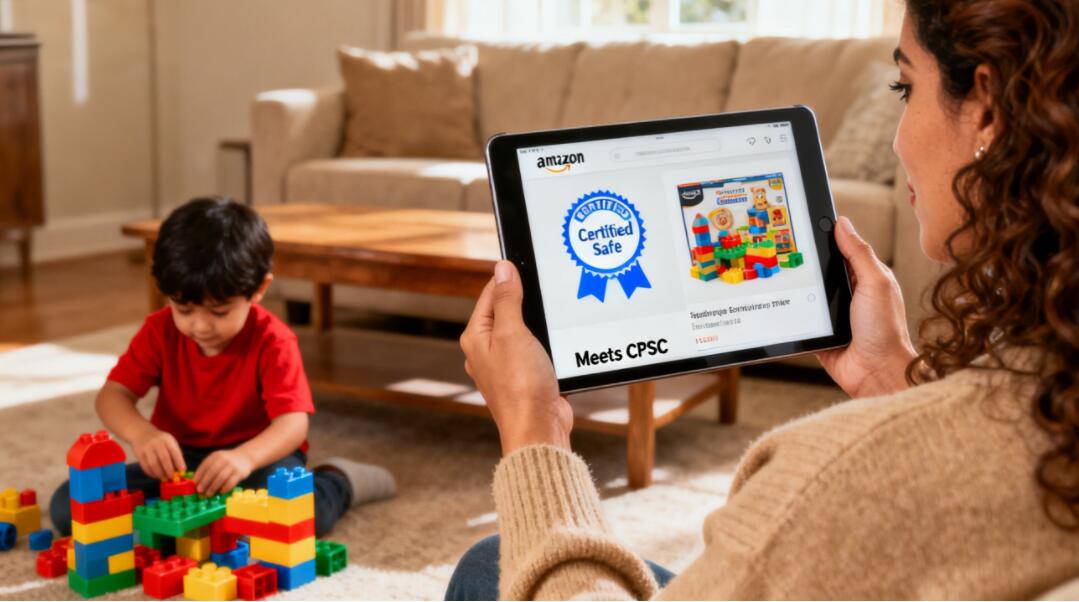Address
304 North Cardinal St.
Dorchester Center, MA 02124
Work Hours
Monday to Friday: 7AM - 7PM
Weekend: 10AM - 5PM

Amazon’s e-commerce dominance depends on one nonnegotiable foundation: trust. Buyers expect safe, reliable products, and sellers who fail on safety will be penalized. In September 2023, Amazon strengthened that foundation by launching the Customer Trust & Safety Program, with particular focus on high-risk categories such as toys. For U.S.-based toy sellers, understanding and complying with this program is no longer optional — it’s essential for survival.
The decision to roll out this program stems from compounded pressures in the online marketplace:
By requiring external, third-party certification from accredited labs, Amazon not only enforces safety but also “outsources” validation to domain experts. This aligns it more closely with competitors like Walmart or Target, which already enforce strong certification regimes in higher-risk product lines.
Amazon now requires that all toy sellers submit proof of third-party certification (from Amazon-approved labs). This is not optional. At a minimum, your certifications must validate compliance with:
If you fail to supply valid documents by the deadline, your listings may be delisted, or your account could face temporary or permanent suspension.
Certification is not a one-and-done affair. Sellers must:
Amazon allows that some established suppliers — those with clean safety records and certified practices — may receive lighter oversight. However:
Amazon has vetted a roster of Testing, Inspection, and Certification (TIC) bodies (e.g. SGS, Intertek, TÜV) to handle this process.
As of October 2025, SGS became an Amazon TIC Direct Validation body, meaning it can submit validated test results directly to Amazon.
Avoid laboratories not on Amazon’s approved list — using them could cause your certifications to be rejected.
The lab will evaluate your product for:
Testing costs vary depending on complexity, but typical fees range from $500 to $2,000+ per SKU.
Under the new “Direct Validation” model, approved TIC bodies now upload test reports and certifications to Amazon’s system themselves, rather than sellers doing so manually.
Your job is to provide accurate data: lab name, accreditation details, SKU mapping, samples, invoice history, etc.
Amazon’s rules and regulatory environments evolve. Stay plugged into:
Promptly respond to any audit request or policy change.
Amazon’s new trust & safety model is likely a pilot. Over time, similar certification requirements may extend into:
If you sell or plan to sell in these categories, building your compliance infrastructure now gives you a head start.
Amazon’s Customer Trust & Safety Program represents a regime shift for toy sellers. The price of noncompliance is steep — delistings, suspensions, or worse. But if you treat safety compliance as a competitive advantage, you can turn risk into trust.
At 1981 Tech, we specialize in helping U.S. toy sellers:
Want help securing your toy listings today? Contact us for a free compliance audit and turn Amazon’s safety mandate into a strategic edge.
Q1: What happens if I don’t provide certification?
Amazon may delist affected ASINs and suspend your account. Continuous noncompliance can lead to permanent suspension.
Q2: Can I use certifications from labs not approved by Amazon?
No — only reports from Amazon-approved TIC labs (or those validated under Amazon’s Direct Validation program) are accepted.
Q3: How frequently must certifications be renewed?
Annually. Additionally, Amazon may require extra tests or audits under certain conditions.